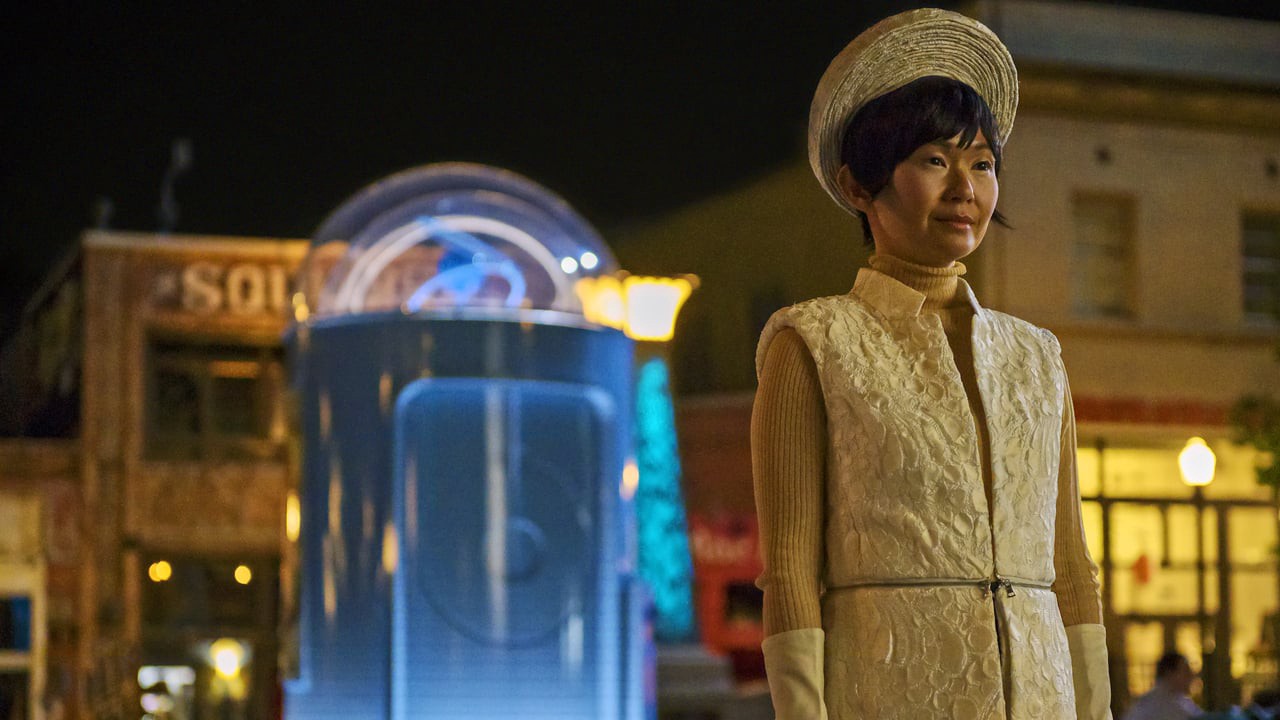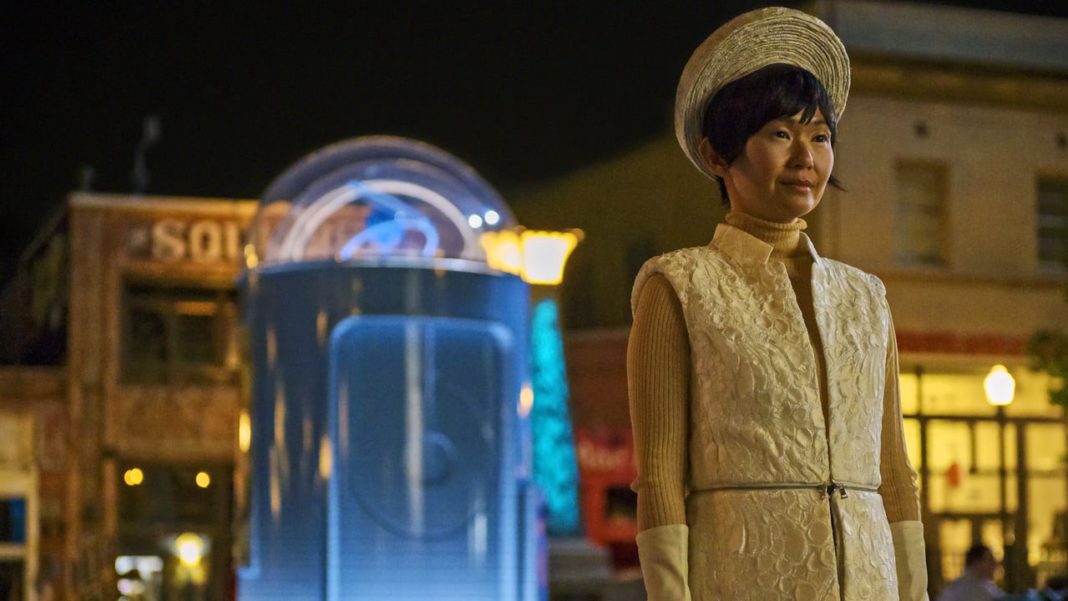
And so this is the end. With Watchmen‘s ninth episode, we close off one of the biggest surprises of the 2019 television schedule. A Watchmen sequel series has not only proven to be one of HBO’s biggest new hits, but has largely won over critics in an arena that almost seemed insurmountable. Watchmen became special by burying its way deep into the current cultural zeitgeist, while building its own compelling mysteries that slowly unraveled and even addressed some of the questions left behind by Alan Moore and Dave Gibbons’ landmark comic. Even if the finale didn’t hit the mark, and fell prey to the same sort of landing that befell a series like Lost, it would be difficult to diminish what Damon Lindelof and his colleagues in the Watchmen writers’ room had accomplished and the raw nerve the series struck with an oft-ignored audience.
But how did “See How They Fly” fare?
Well, like with all things, it’s a little complicated. A definitive answer is likely predicated on what the future of this series holds. As Angela’s (Regina King) foot moved ever closer to her pool’s water, determined to find out if she had indeed absorbed Doctor Manhattan’s powers, I had a sinking feeling. I suspected we were headed to a “cut to credits” and an approach towards the kind of ambiguity that either promises “more to come” or just attempts to allow the viewer to fill in their own conclusion. While HBO continues to state that last night’s episode was a “season finale,” Lindelof has been much more vague, stating that he aimed for this set of nine episodes to tell one complete story and going on record with the fact that he doesn’t current have any ideas for a subsequent season. A refreshing bit of honesty that also makes that final shot more consternating.
If viewers are indeed never going to see what happens next with Angela, not displaying her newfound abilities, or at least show her walking on water, seems like a missed opportunity. For a series that has proven so empowering for so many viewers, it’s puzzling why they wouldn’t take advantage of the visual of a black woman as that world’s next superman. It’s a regrettable decision, unless of course, Lindelof is lying regarding his own future with the series, or potentially another showrunner immediately picking up his baton.
The uncertainly that surrounds that final sequence aside, most of the episode provides satisfying closure to a lot of the series strands. From a structural standpoint, at the series outset, I had pondered why they had elected to tell this story in 9 episodes rather than the standard Watchmen 12-part structure. I had filed this away to just the simplicity of a three-act approach, but my brilliant friend Tim Callahan cracked the code this past week and the “See How They Fly” completely backed his theory up. 9 episodes = 9 months of gestation; thus, all the egg references of course. It’s also a series that has been invested in the idea of what we inherit from our family lineage. From Angela’s costumed crimefighting having an antecedent in her grandfather Will’s days as Hooded Justice, to Senator Keene’s familial legacy of racism and hate as heads of the Cyclops organization, to, as this episode revealed, Lady Trieu’s complex relationship with her father, Adrian Veidt/Ozymandias.
While there are other forces at play in the episode, this is really Hong Chau and Jeremy Irons’ moment (unless you count James Wolk walking around in Doctor Manhattan underwear, and I don’t know why we shouldn’t). The episode is built around two reveals. One completely underscored who the mysterious Lady Trieu actually is (the product of one of Veidt’s cleaning staff stealing a vial of his semen, and impregnating herself with it from a flashback sequence that coincides with the events of the comic), while the other brings to fore her actual scheme and the actual intention of the Millennium Clock (to steal Doctor Manhattan’s powers for herself). I think the former is a bit of a wrongheaded solution and reads like reverse engineering a plausible explanation for this relationship. The “woman wants to steal a man’s seed” trope is rather lazy, and even begs the question why Adrian was freezing his semen in the first place. That caveat aside, the latter reveal of Trieu as the ultimate villain of the series, or “worthy adversary” as Veidt says, is quite satisfying, playing directly off Veidt’s own turn in the comic. She even took an important historical figure’s name, just like Daddy. It was right there in front of us all along.
It’s particularly gratifying to have the Veidt interludes payoff with the context of the finale now in place. Not only do we learn that he was attempting to contact Trieu through his human catapulting efforts, but that he also self-instilled the Game Warden, just to stave off boredom and to provide himself with a foil. Suddenly what felt like the most formless elements of the series now carry better weight and meaning. That he’s been hidden Han Solo-style within that horrible looking statue is just icing on the cake.
More than anything, this episode is the Ozymandias vs. Lady Trieu showdown, and everyone else plays a supporting role. To its credit, this conflict paves the way for a kind of redemption for Veidt. A man who, despite everything, seems enormously contrite about his own crimes in his quietest moments. This is his opportunity to balance the scales just a tad, though as we learn, it’s impossible to make up for his heinous acts, and he still must answer for them in one of the nicer beats of the hour-plus.
But, getting back to Angela, it’s a shame to see the star of your show, who’s driven so much of the action, get backgrounded in the scale of this conflict. For much of “See How They Fly,” she plays the role of passive observer, as things are explained around her and to her. But at least in the back half, as the chaos begins to quiet down, we are treated to a nice stretch of scenes that are just Angela and Will finally settling into their own sort of familial relationship, and the focus does at least re-center itself on its main character.
Still, they really should have given us a little more in that final shot, just to punctuate why Doctor Manhattan had to make that sacrifice he made in the first place. I will never compromise on this, to loosely paraphrase a certain someone. But otherwise, it’s a solidly satisfying finale, particularly if there is more to come. I do love that “Lube Man” remains a hanging mystery, at least. It wouldn’t be Watchmen without at least one of those.









” I had pondered why they had elected to tell this story in 9 episodes rather than the standard Watchmen 12-part structure.”
They’re just sticking to Watchmen’s nine panel grid!
A very well-done series but it wasn’t much of a sequel to WATCHMEN. Lindelof pretty clearly didn’t understand most of the comic book subtext Moore put in or the basic logic of the world Moore created. This was a very talented guy taking a couple of Moore’s plot threads and using it to tell very much his own story. The Silk Spectre BEFORE WATCHMEN entry still stands as they best spin off.
Mike
“the product of one of Veidt’s cleaning staff stealing a vial of his semen, and impregnating herself with it from a flashback sequence that coincides with the events of the comic”
Where does this specifically coincides with the events of the comic? Or does it just line up with the fact that Veidt had staff at his Antarctic headquarters?
Comments are closed.